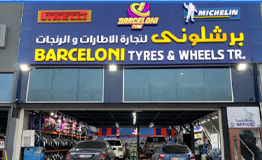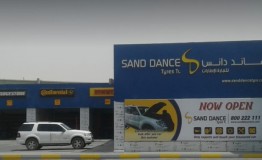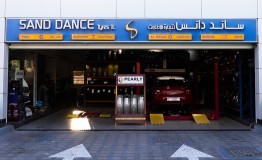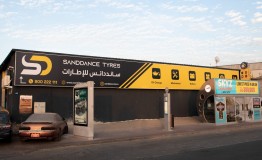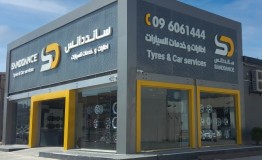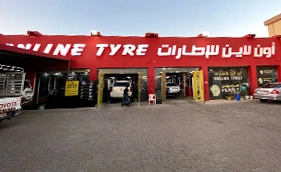From horse-drawn carriages to self-driving electric vehicles, one invention has remained crucial in mobility — the tyre. The rubber tyre not only transformed transportation but continues to evolve with new innovations like Smart Rubber Tyres.
But have you ever wondered who invented rubber tyres and how this simple yet powerful invention became a high-tech component of modern vehicles? Let’s explore the fascinating journey of tyre innovation — from the 19th century’s earliest designs to the intelligent tyres of today.
The Early Days: The Birth of the Rubber Tyre
Charles Goodyear and the Discovery of Vulcanization (1839)
Before tyres became durable and flexible, natural rubber was unstable — it melted in the heat and cracked in the cold. In 1839, Charles Goodyear, an American inventor, discovered vulcanization, a chemical process that strengthened rubber by heating it with sulfur.
This breakthrough laid the foundation for all modern rubber products — including tyres. Without Goodyear’s discovery, durable road tyres wouldn’t exist today.
Robert William Thomson – The First Pneumatic Tyre (1845)
In 1845, Scottish inventor Robert William Thomson patented the first pneumatic (air-filled) tyre. His design used a canvas tube filled with air and covered with leather. It provided a smoother, quieter ride compared to solid rubber tyres.
Unfortunately, Thomson’s invention was ahead of its time — it didn’t gain commercial success due to limited bicycle and vehicle usage in that era.
John Boyd Dunlop – Reinventing the Pneumatic Tyre (1887)
More than four decades later, in 1887, John Boyd Dunlop, a Scottish veterinarian, reinvented the pneumatic tyre to help his son ride his tricycle more comfortably. His version used an inflatable rubber tube, which drastically improved shock absorption and comfort.
Dunlop’s innovation marked the true beginning of modern tyres, revolutionizing the way we think about road safety and performance. This groundbreaking advancement led to the establishment of the Dunlop Tyre Company, one of the oldest and most trusted names in tyre manufacturing. Whether you’re looking for durability, performance, or reliability, Dunlop has consistently set the standard. You can easily find Dunlop tyres around you, with locations across the Middle East. Visit our Dunlop tyre shop in Ajman anytime and buy premium Dunlop UAE tyres, trusted by drivers throughout the region for their unmatched quality and reliability.
Michelin Brothers – The Detachable Tyre Revolution (1891)
In 1891, French inventors Édouard and André Michelin introduced the first detachable pneumatic tyre. This made tyre maintenance and repair much easier, paving the way for widespread adoption in bicycles and automobiles.
Their company, Michelin, became one of the world’s leading tyre manufacturers, known for constant innovation — including radial tyres and airless tyre designs.
The Evolution of Tyre Technology Through the 20th Century
1900s – 1950s: Rise of Synthetic Rubber and Mass Production
As automobiles became mainstream, the demand for tyres surged. During World War II, natural rubber shortages led to the invention of synthetic rubber, which was more durable and cost-effective.
Manufacturers like Goodyear, Bridgestone, and Firestone adopted synthetic materials, transforming tyre production and global accessibility.
1960s – 1990s: The Radial Tyre Revolution
The introduction of radial tyres by Michelin in 1946 was a game-changer. These tyres had cords arranged at 90 degrees to the direction of travel, improving flexibility, fuel efficiency, and tread life.
By the 1970s, radial tyres became the global standard for passenger vehicles — known for better grip, durability, and comfort.
Smart Rubber Tyres: The Future of Intelligent Mobility
As we move toward an era of electric and autonomous vehicles, tyres are no longer just black circles of rubber — they’re becoming smart, connected components that communicate with vehicles and drivers.
Here’s how Smart Rubber Tyres are redefining the future:
1. Embedded Sensors and Real-Time Monitoring
Modern smart tyres come equipped with built-in sensors that monitor:
- Tyre pressure
- Temperature
- Tread wear
- Load distribution
- Road conditions
These sensors send data to the vehicle’s onboard computer or a mobile app, helping drivers make real-time decisions. In the UAE’s hot climate, this technology prevents overheating and blowouts — common issues during summer.
2. Self-Inflating Tyres
Some Smart Rubber Tyres can automatically adjust their air pressure based on load and road conditions. This ensures optimal traction, handling, and fuel efficiency.
Brands like Goodyear and Continental are testing adaptive inflation systems that maintain perfect PSI levels — even during long highway drives.
3. Predictive Maintenance
AI-powered smart tyres use collected data to predict potential issues before they happen. For example, they can alert drivers about uneven wear or underinflation long before it becomes dangerous.
This predictive ability enhances road safety and reduces maintenance costs — a big advantage for fleet operators and logistics companies across the UAE.
4. Sustainable and Eco-Friendly Materials
The future of tyres is not just smart — it’s green. Manufacturers are developing eco-friendly compounds using natural latex, recycled rubber, and even plant-based materials.
In the UAE, where sustainability is a growing focus, smart rubber tyres contribute to the region’s push for eco-conscious mobility and reduced carbon emissions.
5. Integration with Electric and Autonomous Vehicles
Smart tyres are built to support the next generation of EVs and self-driving cars. They provide real-time road feedback, enabling advanced traction control, range optimization, and energy efficiency.
Brands like Pirelli Cyber Tyre are developing tyres that communicate directly with the car’s computer, allowing autonomous vehicles to make safer decisions based on tyre data.
Smart Rubber Tyres in the UAE: Adapting to Local Needs
The UAE’s driving conditions — from extreme heat to long highway commutes — demand tyres that can handle stress and adapt intelligently.
Here’s why Smart Rubber Tyres are gaining popularity across the Emirates:
- Heat-Resistant Materials: Designed to perform in temperatures above 45°C.
- Pressure Monitoring Systems: Prevent blowouts on highways like Sheikh Zayed Road.
- Performance Tracking: Ideal for luxury and sports vehicles in Dubai.
- Fuel Efficiency: Smart tyres help reduce rolling resistance, improving mileage.
As the UAE moves toward a smart mobility future, these intelligent tyres align perfectly with the nation’s goals for connected, sustainable transportation.
The Road Ahead: What’s Next for Tyre Technology?
The next generation of Smart Rubber Tyres will likely include:
- Self-healing compounds that automatically repair small punctures.
- Energy-harvesting tyres that convert friction into electricity for EV batteries.
- 3D-printed tyre structures designed for customization and recyclability.
These innovations will redefine how we view tyres — not as replaceable components, but as integral, intelligent systems that enhance every journey.
Conclusion
From Charles Goodyear’s vulcanization to the cutting-edge Smart Rubber Tyres of today, tyre technology has come a long way. What began as a simple rubber ring has evolved into a complex, data-driven tool designed to improve safety, efficiency, and sustainability.
In the UAE, where performance and reliability are vital, Smart Rubber Tyres offer drivers peace of mind and optimal control — even under the harshest road conditions.
The future of tyres isn’t just about driving — it’s about thinking tyres that understand the road better than ever before.
FAQs
Q1: Who invented the first rubber tyre?
A: The first pneumatic tyre was invented by Robert William Thomson in 1845, and later reinvented by John Boyd Dunlop in 1887.
Q2: What is vulcanized rubber?
A: It’s rubber treated with sulfur and heat to make it stronger and more durable, discovered by Charles Goodyear.
Q3: What are Smart Rubber Tyres?
A: Smart rubber tyres are advanced tyres equipped with sensors that monitor pressure, temperature, and road conditions for enhanced safety and efficiency.
Q4: Are Smart Rubber Tyres available in the UAE?
A: Yes, several brands like Michelin, Goodyear, and Pirelli offer smart tyre options through leading tyre shops across Dubai and Abu Dhabi.
Q5: Do smart tyres improve fuel efficiency?
A: Yes, by maintaining optimal air pressure and reducing rolling resistance, smart tyres can significantly improve fuel economy.









